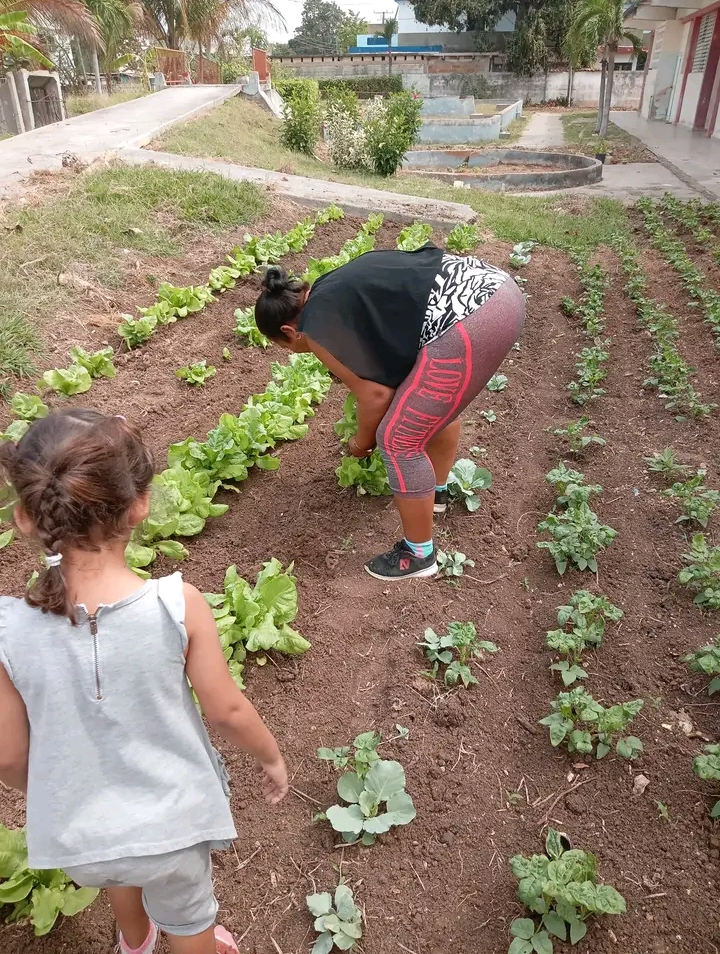
Short cycle sowing in Matanzas educational centers (Photos:Yunielis Moliner)
By Yunielis Moliner*
Primary schools in the province of Matanzas, a territory located 100 km from Havana, are part of the food sovereignty program with the planting of short-cycle vegetables that will contribute to the food in school canteens.
The planting also introduces students to topics such as soil management, permaculture and agroecology, and broadens their knowledge about the consumption of vegetables and their benefits for human health.
The Amiguitos de la Paz children's circle, and the República de México and Jorge Dimitrov elementary schools stand out in the city of Matanzas for incorporating these practices into their routines, which include the decisive role and support of families.
These actions respond to the Food Sovereignty and Food and Nutritional Security Law and reinforce the nation's capacity to produce food in a sustainable manner and provide access to the entire population to sufficient, diverse, balanced, nutritious, safe and healthy food, reducing dependence on external means and inputs with respect for cultural diversity and environmental responsibility.
In addition, food sovereignty and the strengthening of food and nutritional security are objectives to be achieved in Cuba as part of the 2030 Agenda in order to progressively guarantee the protection of the right to healthy and adequate food of the people.
Articles 77 and 78 of the Constitution of the Republic of Cuba establish that all people have the right to healthy and adequate food, to consume quality goods and services that are not harmful to their health, to have access to accurate and truthful information about them and to receive equitable and dignified treatment, in accordance with the law and, consequently, the State creates the conditions to strengthen food security for the entire population.
*correspondent for Radio Havana Cuba in Matanzas

